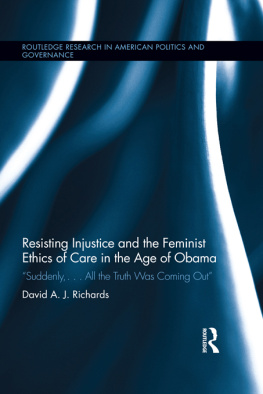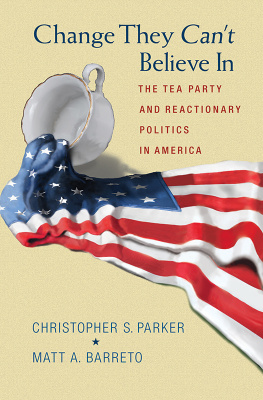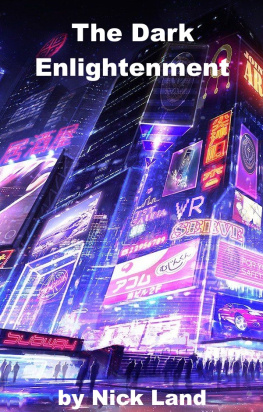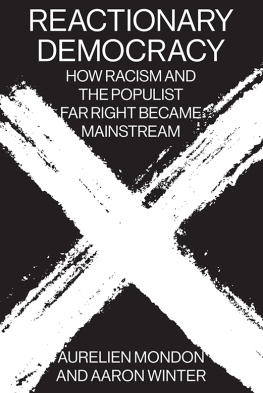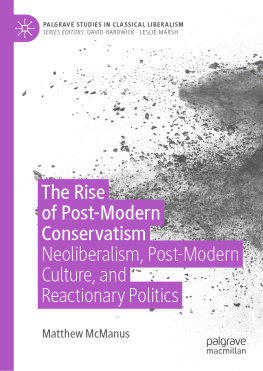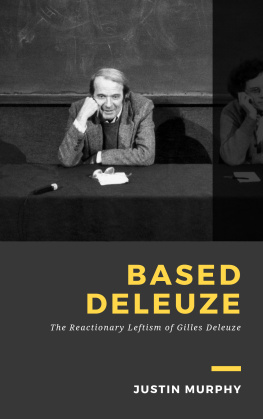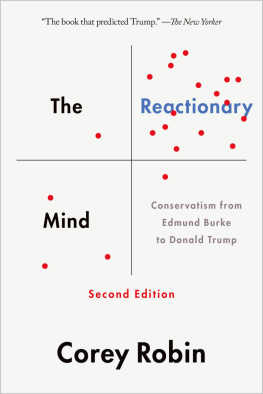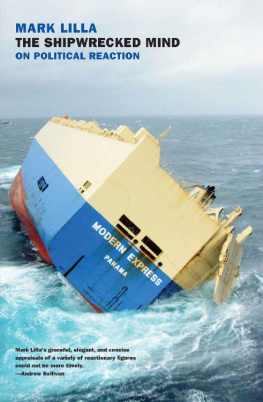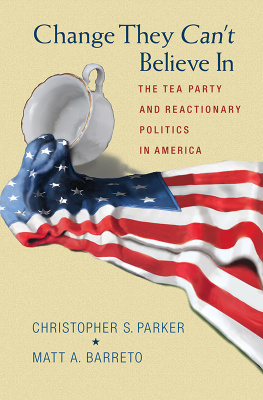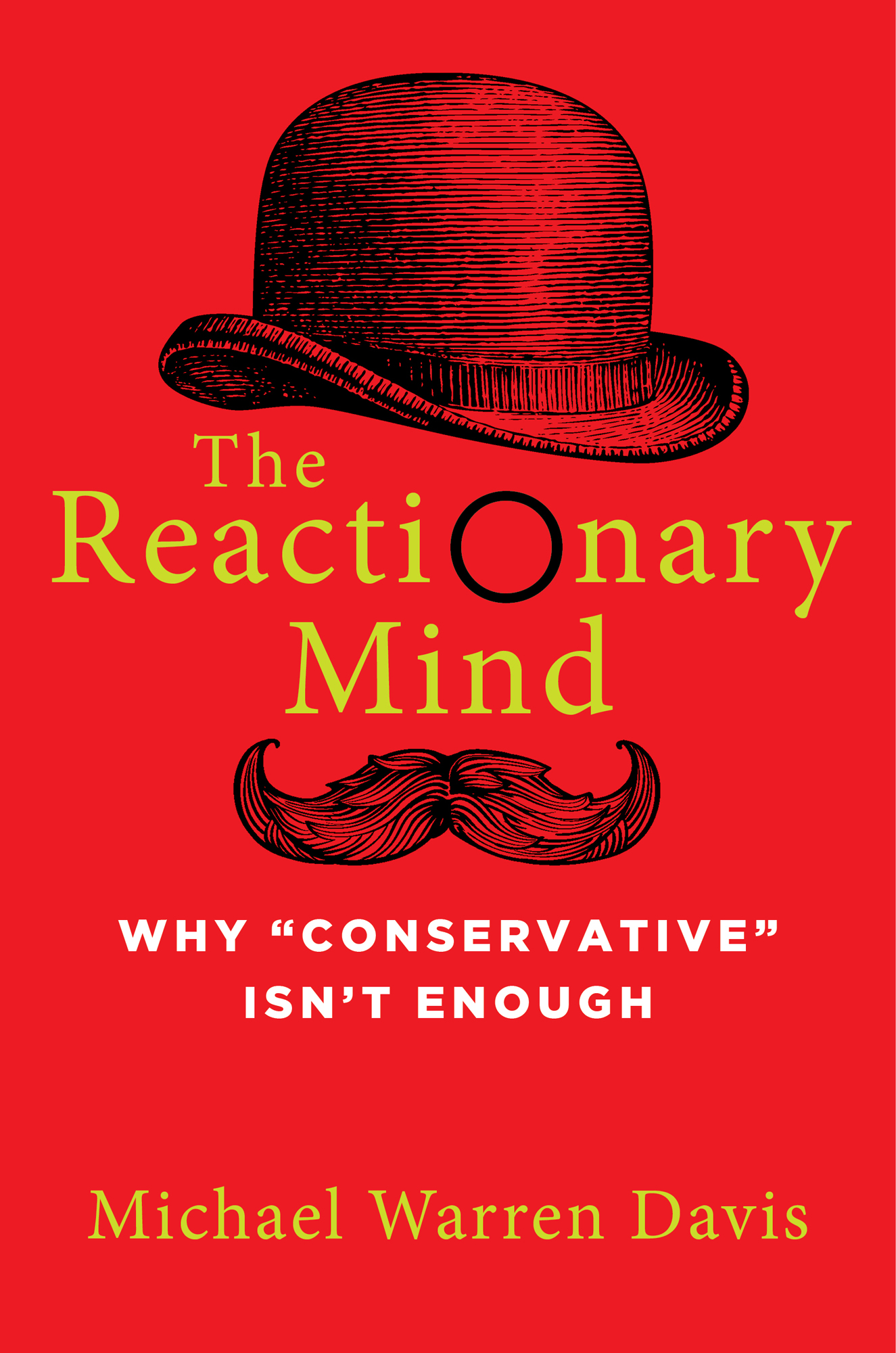Contents
Guide
The Reactionary Mind
Why Conservative Isnt Enough
Michael Warren Davis
For Helena
Well, if I have to choose one or the other
I choose to be a plain New Hampshire farmer.
Robert Frost
I NTRODUCTION The Happy Warrior
To be happy at home is the end of all human endeavor.
Samuel Johnson
T his is a book about happiness.
Happiness is something we tend to take for granted. Which is odd, really. By every measurement, Americans are less happy than weve ever been in our countrys history. More and more of us report feeling chronically lonely. We have fewer friends and less sex. Divorce rates are falling, but only because marriage rates are falling even faster. Meanwhile, deaths by despair are way upso much so that the life expectancy for white males is declining for the first time in recorded history.
How can this be?
Heres my theory: for too long, weve confused happiness with comfort.
And we Americans are pretty damn comfortable. We have smartphones and air conditioners. We have Tinder, Uber, and the drive-thru at McDonaldsall in one night, if you time it right. A friend of mine from Australia remembers his family getting dressed up every time they went to Sydney. Even the beggars wore a coat and tie, he recalls. Today, we have athleisure.
Were comfortable, sure. But were not happy.
As a matter of fact, I think some of us really chafe under all this comfort. Thats the thesis of this book. It begins with the awesome, bracing revelation that grown-ups actually like doing things for themselves. We dont want to be constantly comforted and pampered. We dont want to be distracted by a constant stream of bright lights and inane noises. Thats fine for babies, but not for men and women. It doesnt actually make us happy.
We want freedom. We want independence. And we know, if were honest, that freedom and independence come only through struggle and strain.
But we havent been honest; weve redefined freedom and independence. Freedom used to mean the ability to do whats right, free from unjust coercion. Today, it means doing whatever the hell you want. Justice Anthony Kennedy put it best in his majority decision for Planned Parenthood v. Casey: At the heart of liberty is the right to define ones own concept of existence, of meaning, of the universe, and of the mystery of human life. And thats much easier, isnt it? For us, freedom is about making choicesthe choice between Uber and Lyft, between McDonalds and Burger King. If youre really forward-thinking, its the choice between Tinder and Grindr.
And independence? Well, that was all right in simpler times, but today life is complicated and best left to the professionals. An army of helpful bureaucrats stand ready to tell you what to eat, what to drink, and what books your children should read. Theres an app to tell you whom to vote for, whom to marry, and (according to my uncle, a TikTok fiend) when to go to bed. A child born in the year 2021 could easily go his entire life without making a single consequential decision for himself.
Some might call that convenience. I call it slavery.
Im not here to blame anyone. Not the Protestants or the Jacobins, the boomers or the millennials, not even the World Economic Forum. Thats all way too simplistic. No, I blame me. And I blame you. Because the fact is that we chose slavery over freedom. For centuries now, weve been slowly trading away our independence and gladly selling off our happiness to Big Government, Big Business, and (lately) Big Techall in exchange for more creature comforts.
We renew that servitude about a hundred times every day. When we order T-shirts on Amazon instead of going to the store. When we grab a hot-and-ready pizza instead of cooking for ourselves. When we text our best friends instead of going down to the bar for a drink. When we flick through our phones on the bus instead of reading a book. When we stay up until midnight watching Steven Crowder absolutely destroy some dumb college freshman. When we cash our eighteenth COVID stimulus check, despite having been gainfully employed for ten years.
You know, theres a word for people who only talk to their friends over the phone, who have their clothes and their meals delivered right to their door, and who bill everything to the government. Theyre called prisoners. And thats what weve become. Were prisoners of our own convenience.
Think about it. When the coronavirus pandemic swept the United States, practically every governor in the country declared a state of lockdown. Now, I dont know the first thing about health policy. What I do know is that the lockdown orders couldnt have happened twenty years ago; the very idea of putting virtually every American into solitary confinement would have been inconceivable. How could we all go into lockdown when everything happens out there? Except for new moms and small children, basically everyone was out of the house for most of the day. Folks couldnt imagine living any other wayuntil, of course, they could.
That was the real horror of the lockdown. It proved that a huge majority of Americans could get by in isolation. Its not that the government could tell us to stay home and we did. (Thats another matter.) Its that it worked. There was no mass starvation. We ran low on beef and toilet paper, but the supply chain held up.
Apparently, Margaret Thatcher was right: theres no such thing as society. Not anymore. COVID checks, Amazon Prime, and Netflix made it redundant.
But is that how we want to live?
We thought that technologys making everyone more interconnected would bring human beings closer to one another. In fact, just the opposite has happened. All of our relationships have become shallower, more transactional. We use one another, but we dont really need one another. Once delivery drones and sex robots take off, we wont need other human beings for anything. Then well all be comfortable as hell.
But I ask you again: Is that what we really want? Will that make us happy?
It has taken the better part of seven hundred years for mankind to render itself redundant. This is a process weve (rather cruelly) dubbed progress. The True, the Good, and the Beautiful came at too high a cost: our blood, sweat, and tears. We traded in beauty for the merely sensual. We gave up on goodness in favor of self-expression. Truth is out; ideology is in.
Part I of this book will consider the major catastrophes in Western history that brought about this false progress: the Renaissance, the Protestant Reformation, the Scientific Revolution, the Enlightenment, and the French Revolution.
Well meet those heroic reactionaries who fought to stem the tide. These men stood for freedom and independence against servitude and decadence. Theyre partisans of truth, goodness, and beauty. These are men like Girolamo Savonarola, Thomas More, Robert Bellarmine, Joseph de Maistre, Ned Ludd, and G. K. Chesterton.
Well also discuss how this idea of endless, unstoppable progress left us blind to the damage wrought over the last seven centuries and totally unable to imagine a better future for ourselves and our children.
Along the way, well see how conservatives have served as adagio progressives: accepting progress, but slowly. The American journalist William F. Buckley Jr. famously declared that the conservative is one who stands athwart history, yelling Stop. But that was more of an aspiration than a reality. In truth, conservatives always seem to wind up jogging alongside history, huffing, Please, for the love of God, slow down. Thats no coincidence. Nor is the fact that so many conservatives finally wear down and simply say, Hurrah for progress! Hurrah for capitalism! Not only is it easier to say that, but they lack the philosophical wherewithal to say anything else.



